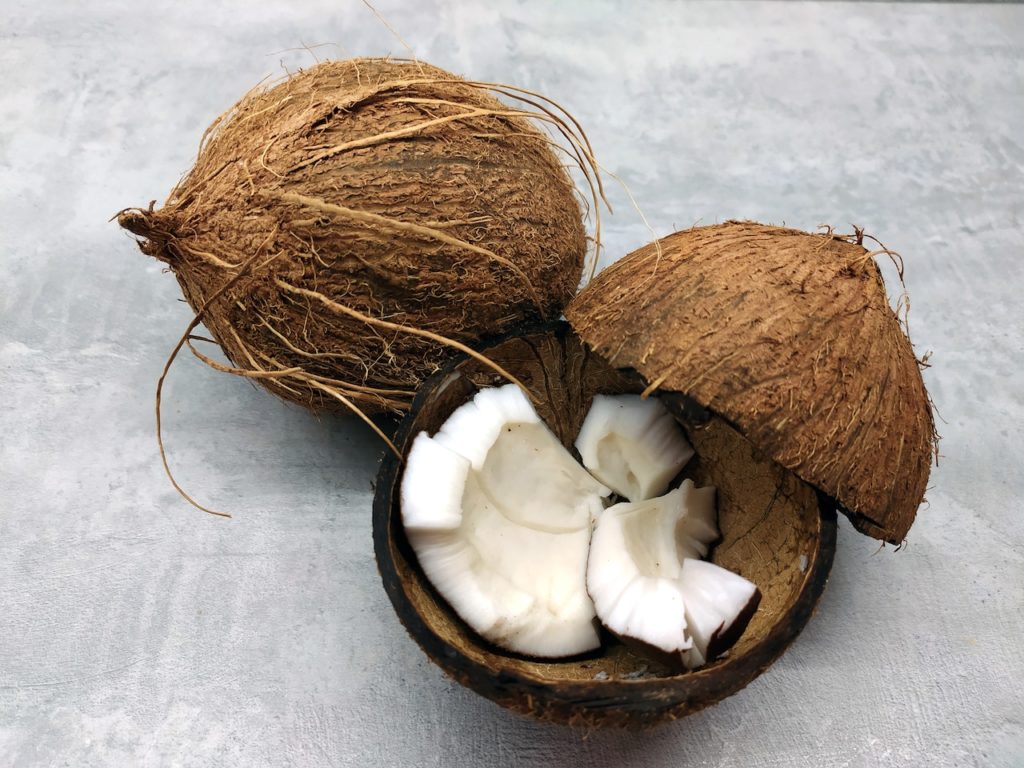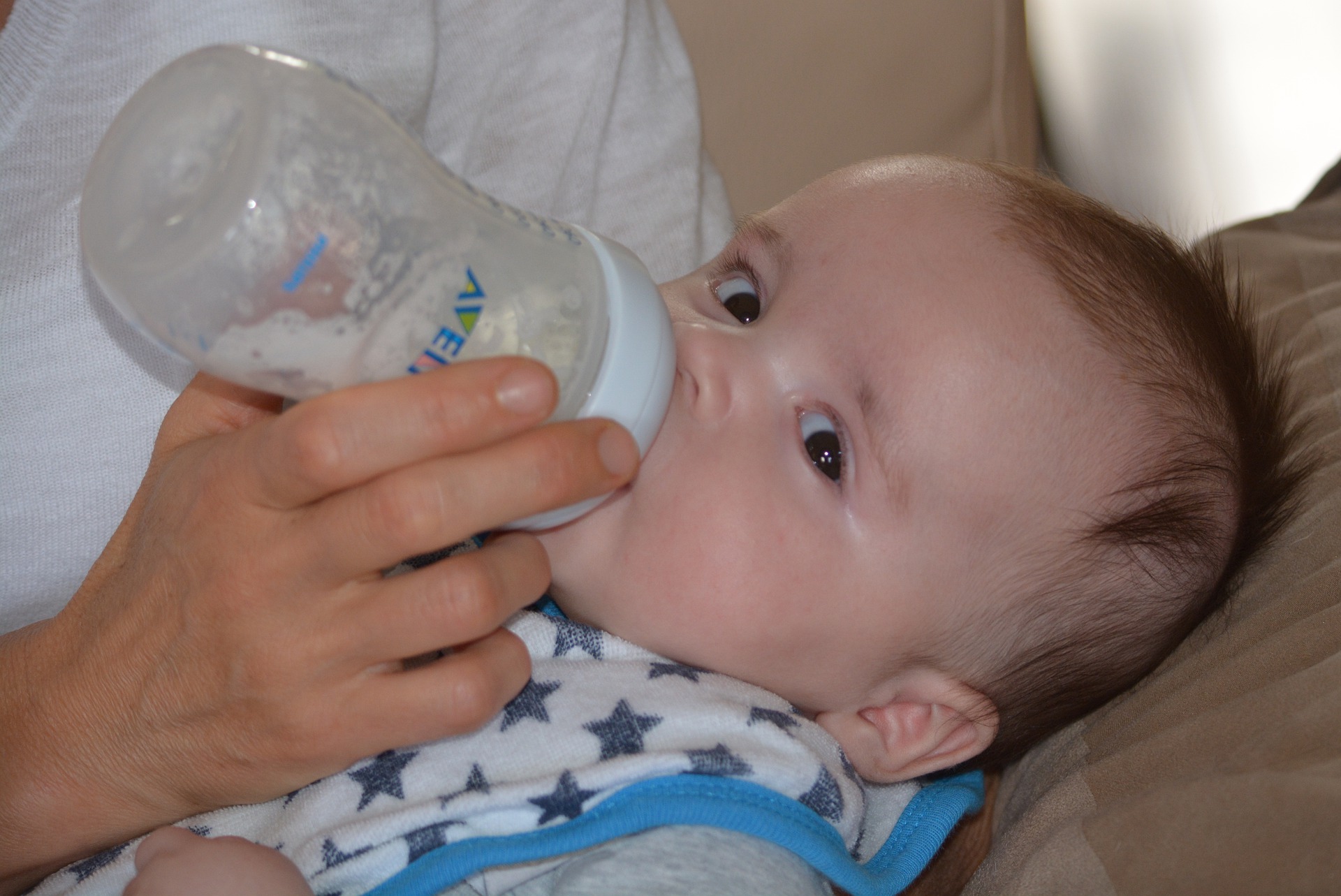Yes, there is plant-based baby formula. And it’s not as hard to find as you might think. When I was a new mom over 20 years ago it was difficult, but no more!
There are a few different types of plant-based baby formulas on the market today. So if you’re looking for an alternative to dairy-based formulas or if your baby is intolerant to lactose, one of these formulas might be a good option. Keep reading for more information about the different types of plant-based baby formulas and where you can buy them.
Table of Contents
- What Are Plant-Based Baby Formula
- Why Parents Are Choosing Plant Based Formulas
- The Different Types of Plant Based Formulas Available
- Tips for Using Plant Based Formulas
What Are Plant-Based Baby Formula

Baby formula is a big business, with billions of dollars in annual sales. However, there is a growing movement to create plant-based alternatives to traditional milk-based formulas. These formulas are made from ingredients such as soy, almonds, or rice, and they are designed to provide all the nutrients babies need for healthy growth and development.
While plant-based formulas are not yet as widely available as their milk-based counterparts, they are gaining popularity among parents looking for more natural and sustainable options for their children.
In addition to being free from animal products, plant-based formulas are also typically lower in sugar and calories than traditional formulas. As more parents become aware of the benefits of plant-based baby formula, these products will likely become more widely available.
Why Parents Are Choosing Plant Based Formulas
As more and more parents become aware of the benefits of a plant-based diet, they are beginning to explore plant-based formulas for their infants and toddlers. There are several reasons why parents are making this switch.
First, plant-based formulas are more easily digested than ones made from cow’s milk. This is because plant-based proteins are smaller and simpler than animal proteins, making them less likely to cause digestive problems.
Second, plant-based formulas are often lower in allergens than cow’s milk-based formulas. This is important for parents who have children with allergies or sensitivities. Third, plant-based formulas are typically made with organic ingredients, which means they are free of harmful pesticides and other chemicals.
Finally, many plant-based formulas are fortified with essential nutrients like iron and vitamins A and D, which are important for early childhood development. For all these reasons, parents are increasingly choosing plant-based formulas for their children.
The Different Types of Plant Based Formulas Available

There are a few different types of plant-based baby formulas available on the market today. These:
Sprout Organic Plant Based Infant Formula
Sprout is a unique organic infant formula that is made from plant-based ingredients. Unlike other formulas on the market, Sprout does not use any dairy or soy products. Instead, it relies on a combination of brown rice syrup, peas, and potatoes to provide the necessary nutrients for growing babies. Sprout is also free of artificial flavors, colors, and preservatives.
This makes it an ideal choice for parents looking for a healthy and natural option for their baby. In addition to being healthy, Sprout is also delicious. Babies who have tried it love the sweet taste of brown rice syrup. And because it doesn’t contain any dairy or soy, Sprout is easy on the tummy and gentle on the digestive system.
Else Nutrition Vegan Toddler Formula
Else Nutrition is a vegan toddler formula made from a blend of plant-based ingredients, including almonds, quinoa, and peas. Else Nutrition is designed to provide all the essential nutrients toddlers need for healthy growth and development. In addition, it is free of dairy, soy, gluten, artificial flavors, colors, and preservatives.
Bébé Mandorle First Infant Baby Formula
The unique blend of ingredients includes almond milk, organic brown rice syrup, and organic palm oil, which all work together to provide a balanced diet for your infant. The organic brown rice syrup provides essential carbohydrates, while the organic palm oil provides essential fatty acids. Almond milk provides a high-quality protein source and is rich in calcium and vitamin D. This formula contains no artificial colors, flavors, or preservatives.
Nature’s One Baby’s Only Organic Toddler Formula
Their Baby’s Only Organic Toddler Formula is made with organic ingredients and contains no artificial flavors, colors, or preservatives. This formula is designed to give your toddler the nutrients they need to grow and develop properly. It is also easy to digest and gentle on the stomach. Nature’s One formula is vegan, gluten-free, and Kosher so that all families can use it. Plus, it is made in the USA from start to finish. When you feed your toddler Nature’s One formula, you can confidently give them the best nutrition.
Where to Buy Plant Based Formulas
One option is to purchase online from a retailer specializing in baby formula, such as Baby’s Only Organic or Earth’s Best. These retailers usually have a wider selection of plant-based formulas than those available in stores.
Another option is to check the natural food aisle of your local supermarket or health food store. Many large retailers are now carrying at least one type of plant-based formula, and some even have an organic option.
Finally, you can always ask your pediatrician if they know of any good sources for plant-based formula. They may be able to recommend a specific brand or type that would be suitable for your child. By doing some research, you should be able to find a source for a plant-based formula that works for you and your family.
Tips for Using Plant Based Formulas

Plant-based formulas are a great way to improve their health for many people. Here are some tips for using them:
- Make sure your baby is getting enough protein. Plant-based formulas are often lower in protein than animal-based products, so it’s important to ensure they get enough from other sources. Protein sources include beans, lentils, quinoa, nuts, and seeds.
- The baby should get enough fat. Fat is essential for absorbing many vitamins and minerals, so ensure you include healthy fats in your baby’s diet. Good sources of fat include avocados, olive oil, and nuts.
- The baby should eat plenty of fruits and vegetables. Fruits and vegetables are packed with nutrients that are essential for good health. Aim for at least five servings per day.
- Drinking plenty of water. Water helps to flush toxins from the body and keep the baby’s cells healthy. The baby should drink at least eight ounces per day.
- Speak with a physician before making major changes to your baby’s diet. This is especially important if they have any health conditions or allergies. They can help you create a safe and nutritious plan for your child.
Hopefully you find my formula tips useful!
Until next time,
Sharon Dunn











